Conviviality Retail’s acquisition of drinks distributor Matthew Clark has given it enormous buying power that could seriously disrupt the drinks retailing sector.
As a smaller company, Conviviality Retail was forced to undertake a ‘reverse takeover’ of Matthew Clark and is using a share placing and new debt facility to finance the £200m acquisition.
Matthew Clark is significantly larger than Conviviality Retail in terms of turnover. Conviviality reported revenues of £364.1m for the year ending April 26, while in comparison Matthew Clark generated revenues of £811.2m for the year to February 28.
By combining the retailer’s off-licence business with Matthew Clark’s ‘on-trade’ network – pubs and restaurants for example - Conviviality Retail is hoping to create a ‘one-stop shop’ for drinks suppliers.
“What this deal does is really strengthen our position as the leading drinks wholesaler, we are creating a really unique model by connecting off-trade and on-trade,” Conviviality boss Diana Hunter tells Retail Week.
More buying power
The prospect of a drinks supplier being able to approach Conviviality for both its off-trade and on-trade needs is a compelling proposition and one that will significantly strengthen the retailer’s buying power, enabling it to more easily beat the supermarkets on price.
Currently Conviviality store sales make up 2.5% of total spending on alcoholic drinks in the UK, according to figures from Mintel.
Hunter argues that Conviviality “already competes really well” with the grocers on price and claims her company is over 10% cheaper on its promotions. However, this deal will undoubtedly enable the retailer to aggressively compete with everyday pricing.
Investec director Gary Levin, who advised on the acquisition, believes the deal will be “transformational” for the company because it will “create significant scale”.
Another analyst who wished to remain anonymous says the deal puts Conviviality in a “very strong position” when it comes to competing against the grocers. “They will be a huge buyer of beers, spirits and wines.”
Indeed, Matthew Clark delivered over 48 million bottles of wine, 22 million bottles of spirits, 171 million pints of beer and 16 million bottles of cider to 17,000 premises including hotels, pubs and nightclubs in the year ending February 2015.
Conviviality Retail aims to leverage Matthew Clark’s extensive delivery in particular. The drinks distributor operates 14 depots across the country to enable it to provide a nationwide next-day delivery service with timed delivery services to its range of customers.
As Conviviality Retail, which operates the Bargain Booze and Wine Rack fascias predominantly in the Northwest, expands further into the South of England and Scotland it will capitalise on Matthew Clark’s distribution network, once the deal is given shareholder approval on September 24.
At present, the closest distribution centre to the south that Conviviality operates is in Crewe, despite some of its franchise partners operating stores as far away as Newquay.
Yet while locations such as the Newquay store are likely to benefit from faster deliveries in the short term as a result of the acquisition, Hunter hinted next-day delivery to all its nationwide franchise partners could be a while off.
Skills influx
Hunter says one of the key benefits of the deal for Conviviality are the skills of Matthew Clark’s employees.
Matthew Clark prides itself on its ability to source exclusive wines and provide product advice to customers to develop bespoke offerings.
Hunter argues it is this expertise that will allow its franchise partners to offer a point of differentiation against its competitors. “Where Matthew Clark’s excellence lies is its people, who have understanding and passion for the product,” she says.
Like any acquisition, there will be a number of areas where Conviviality can cut costs through the overlap of back-office functions and synergies.
While Hunter does not want to be drawn on the precise amount of cost savings the acquisition will bring until the deal has gone through, Panmure suggests there could be around £4m of synergies initially, which in itself is a conservative estimate.
While the companies will initially operate as standalone divisions with their existing management structures on the completion of the acquisition, they will later leverage each other’s strengths following a bedding-in period.
And with huge buying power at the combined company’s fingertips on the horizon, the new Conviviality Retail is set to pose a serious threat to the major grocers.




















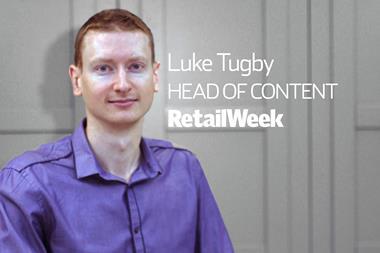
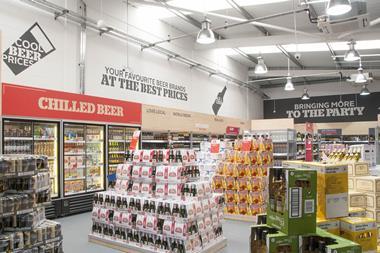
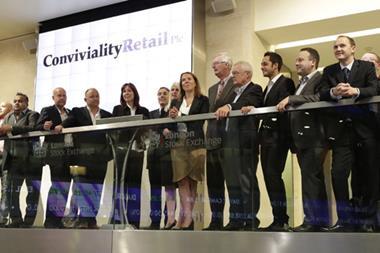
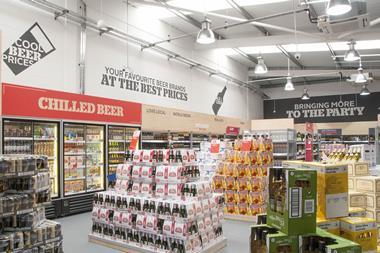
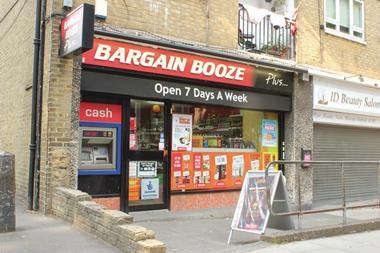
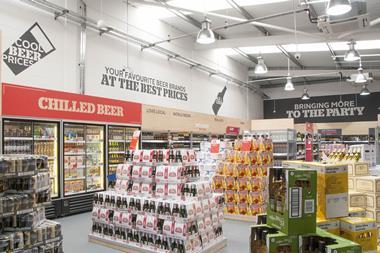
No comments yet